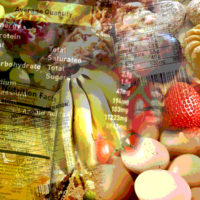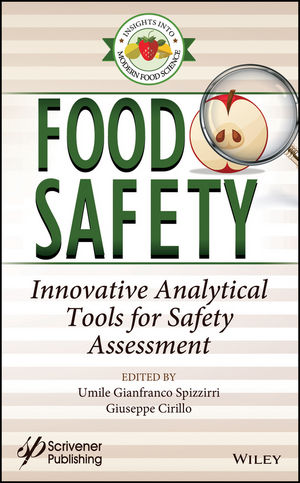Health and Safety Arguments over GMO Labeling

The ongoing debate over labeling foods made with genetically modified organisms (GMOs) has only intensified over the past year. A central contention is the degree to which either side trusts, or doesn’t trust, pronouncements by the U.S. Food and Drug Administration (FDA) and other agencies that food resulting from genetic engineering is safe and no different than food from traditionally bred plants. The mistrust of GMO labeling proponents is primarily based on the view that government agencies are unduly influenced by biotech companies like Monsanto that profit from GMOs and that questions about GMO safety still persist.
This mistrust might be shared by the public. A recent ABC News poll found that approximately 93 percent of the public believe the federal government should require labels on food stating whether it has been genetically modified or “bio-engineered.”[1] Significantly, the same poll found that 52 percent believe that foods made with GMOs are unsafe with an additional 13 percent unsure about the safety of such foods. Clearly, the perception of safety plays a large role in the movement to label GMO foods.
The debate over GMO labeling, and by extension the safety of GMO foods, is presently being fought in federal court. Several food industry trade groups, including the Grocery Manufacturers of America (GMA), filed suit in June 2014 to prevent Vermont’s GMO labeling law from going into effect in June 2016. That law is the first successful effort at the state level to implement GMO labeling after failed ballot initiatives in California and Washington. Notably, attorneys representing Vermont have expressly argued that the law was “expressly prompted by health and safety concerns.”
The result of this lawsuit, expected later this year, will play a pivotal role in whether other states move forward with similar laws and whether the debate over health and safety risks shifts towards one side or the other. Pleadings and briefs filed by the parties in that case provide insights into the arguments on both sides of the labeling issue.
Food Industry Trade Groups: The “Debate” Over GMO Health and Safety Debate is Over
Attorneys representing GMA and other industry trade groups argue that GMOs provide an array of benefits and that the “vast majority of foods sold in grocery stores in the United States today contain some amount of at least one ingredient that is connected to a [genetically-engineered] plant.” Highlighting the prevalence of GMOs is, of course, an implicit argument that their widespread consumption is an indication of safety. In this context, the following specific points are set forth to bolster the claim that foods made from GMOs do not pose any health or safety risks as compared to foods made from traditionally bred plants.
First, the federal agencies responsible for food labeling, FDA and the U.S. Department of Agriculture, have rejected calls for GMO labeling. In this regard, they note an FDA policy statement from 1992 and draft guidance for labeling in 2001 in which the agency stated that it found no evidence that foods developed by genetic engineering present any different or greater safety concerns than foods developed by traditional plant breeding. They then highlight more recent testimony by FDA Commissioner Margaret Hamburg before Congress in March 2014, in which she said that “credible scientific organizations” have “looked hard at this issue over a long period of time,” and the agency “ha[s] not seen evidence” of health risks. The trade associations also quote Secretary of Agriculture Tom Vilsack who said that when the federal government “require[s] a label on something, we’re either warning there’s a potential safety problem or we’re giving nutritional information.” Accordingly, Vilsack stated, labeling GMO foods “doesn’t fit” precisely because “[t]here’s not a safety issue, and [genetic engineering] doesn’t affect nutrition—it’s about the process through which food is created.”
Second, they cite findings by organizations such as the National Academy of Sciences and American Medical Association that, respectively, no evidence supports singling out GMOs for safety assessments and that “there is no scientific justification for special labeling of bioengineered foods, as a class.” They contend that the safety of GMOs has also been affirmed by the American Association for the Advancement of Science, the World Health Organization and the European Commission.
In addition, the testimony of Dr. Alan McHughen, a molecular geneticist, is provided that sets forth additional facts regarding McHughen’s view that a “scientific consensus” on the safety of GMO-derived foods. Finally, the trade groups state that studies published by proponents of labeling that imply health risks with GMOs have been shown as “either unreliable, irrelevant or both” by regulators and “other scientific experts.”
In light of the foregoing, the trade groups contend that the debate regarding GMO products is over and, accordingly, Vermont had “no basis whatsoever” to be concerned about health and safety issues when it enacted the labeling law.
The State of Vermont: The State Legislature Had Grounds for Concern Regarding the Health and Safety of GMOs
In response, attorneys representing the State of Vermont contend that the first of four purposes behind the labeling law is to enable persons to “make informed decisions regarding the potential health effects of the food they purchase and consume,” and, if they choose, to “avoid potential health risks of food produced from genetic engineering.” In this regard, the attorneys cite the following legislative findings:
• There are “conflicting studies assessing the health consequences of food produced from genetic engineering;”
• Genetic engineering of plants and animals may cause unintended consequences;
• “FDA relies entirely on safety studies submitted by manufacturers…while independent scientists may be limited in their ability to assess genetically engineered (GE) foods because of industry or patent restrictions on research;” and
• “[N]o long-term or epidemiologic studies have been conducted in the United States examining the safety of human consumption of GE foods.”
In light of this “scientific uncertainty,” the attorneys argue, the only certainty is that lack of GMO labeling means that “consumers with health, environmental, and religious concerns related to GE foods are left in the dark about whether the food they purchase was in fact produced with genetic engineering.”
Significantly, they also put forth written testimony from Michael Antoniou, coauthor of a book entitled, GMO Myths and Truths: An evidence-based examination of the claims made for the safety and efficacy of genetically modified crops and foods. That study was relied upon by the Vermont legislature and is the same and only study that The Non-GMO Project—a leading organization against GMOs—lists on its website under the heading “GMO Science.” The most significant claim in that lengthy study is the charge that “[s]tudies show that GM foods can be toxic, allergenic, or have unintended nutritional changes.”
In his testimony, however, Antoniou primarily disputes the claim that there is a consensus on the safety of GMO-derived food and cites statements from scientific and professional organizations supporting the call for GMO labeling or that suggest that more research, especially over the long term, is needed to fully evaluate GMO health and safety risks. Accordingly, he contends that “there is a good-faith scientific disagreement on the issue.” Because the burden is on the food industry trade groups to show that the Vermont legislature did not have solid grounds for its concerns over safety, Antoniou does not need to go any further.
Conclusion
The debate over the safety of food derived from GMO ingredients will not end when the court rules on Vermont’s GMO labeling law. Rather, the judge will likely determine only whether the Vermont legislature had a reasonable basis for determining that potential health risk exists with GMO-derived foods. That ruling, however, will be strong fodder for the winning side in future battles over this contentious issue.
David L. Ter Molen is partner and member of the Food Industry Team at Freeborn & Peters LLP (Chicago).
Reference
1. abcnews.go.com/Technology/story?id=97567.
>
Looking for a reprint of this article?
From high-res PDFs to custom plaques, order your copy today!







